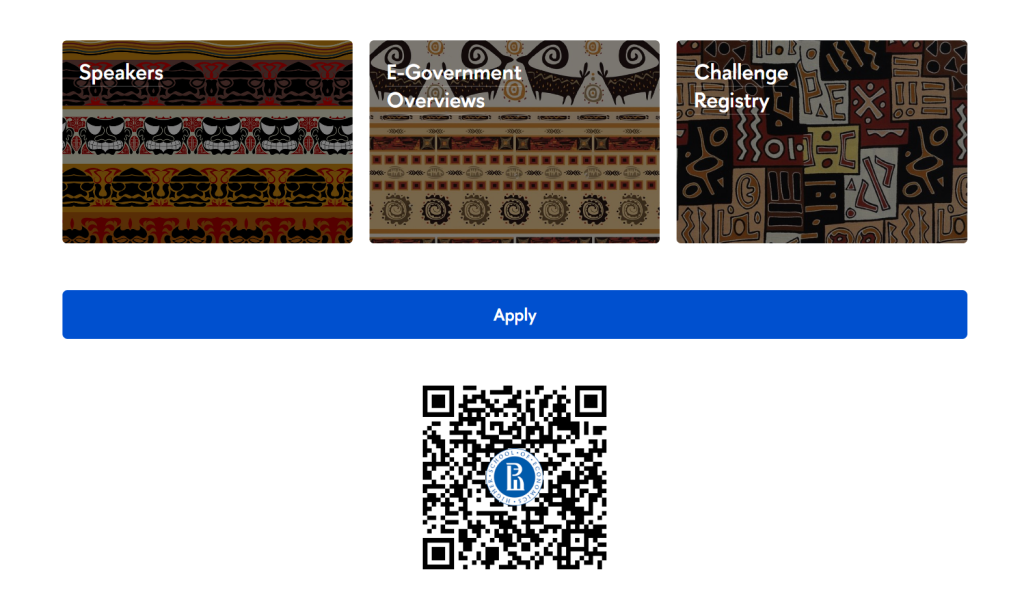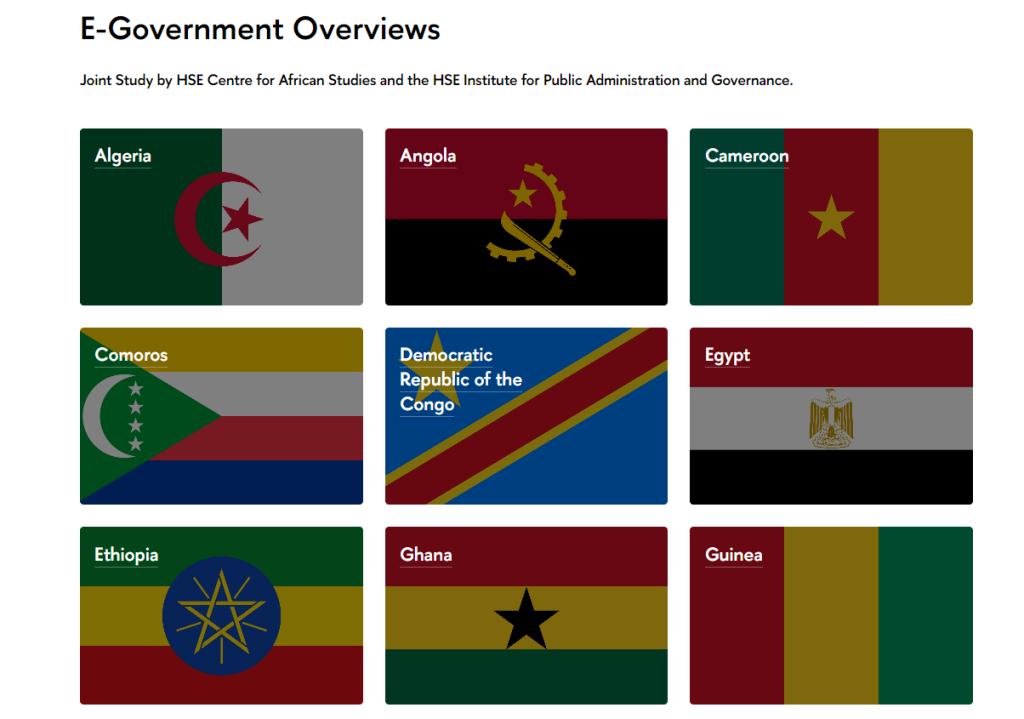In December 2022, the Center for African Studies of the HSE University in Moscow introduced e-Governance Knowledge-Sharing Hub with the declared aim of sharing experience of development and implementation of digital solutions and establishing links between Russian and African stakeholders.

Source: HSE Center for African Studies
The project was announced shortly after the D4D Access platform provided by the African Union – European Union Digital for Development (D4D) Hub. The European Hub largely based on the Estonian experience was put into operation in November 2022. The organisations participating in the project are Enabel (Belgium), GIZ (Germany), AFD (France), LuxDev (Luxembourg), MFA Estonia, ITL and eGA (Estonia), and Expertise France. The European Union’s financial contribution to the project stands at 89% of the overall budget, with the latter being €8 974 220.
The information concerning the financial support of the Russian Hub is not disclosed.
The rapid growth in the number of initiatives focusing on the development of Africa corroborates the growing role of the continent in world economics and politics. Now the African countries are likely to benefit from the competition between two similar hubs, by EU and Russians, yet the projects present different selections of services and assistance.
To date, the Russian Hub provides e-governance country profiles on ~15 African countries, alongside with some information on projects implemented by Russian ICT business in Africa.
The overviews on e-Government development in fourteen African countries are available online. The registry of challenges is also announced with the case studies, including the reports on Critical Infrastructure Software Vulnerability and Lack of Stable Electricity Supply in Schools.

Source: HSE Center for African Studies
The Hub is expected to integrate elements of the announced Knowledge-Sharing Programme and provide the list of recommendations with the aim of becoming a comprehensive database in the spheres of digital transformation of public administration.
The targets of bilateral cooperation between Russia and African countries in the sphere of digitalisation were discussed at the International IT Forum held in Moscow in April 2023. The event was attended by Russian and African officials and leaders of IT companies. The experts stressed the importance of knowledge-sharing format. The Deputy Executive Director of Innopraktika Anastasia Pavlenko highlighted that in accordance with the HSE Center for African Studies Knowledge-Sharing Programme a specific educational event will be held in Saint Petersburg soon.
Solomon Soka, the director of the Information Network Security Administration (INSA), the national signals intelligence and cybersecurity agency of Ethiopia managed by the Ministry of Peace mentioned the issue of digital sovereignty and the significance of Russian-African partnership in his interview to Sputnik: «sharing the experience of Russia gives hope to developing states that most of the African countries will have strategies for digital transformation. So it gives hope that they will come up to speed and start from the end, from state-of-the-art technology, instead of building a longer way with old technologies».
The African Union and the regional organisations are introducing policies, strategies and regulations and are striving to take advantage of digitalisation. African Union’s Agenda 2063 and national strategies look towards prosperous Africa driven by technologies and innovation.
Author:
Daria Sukhova
